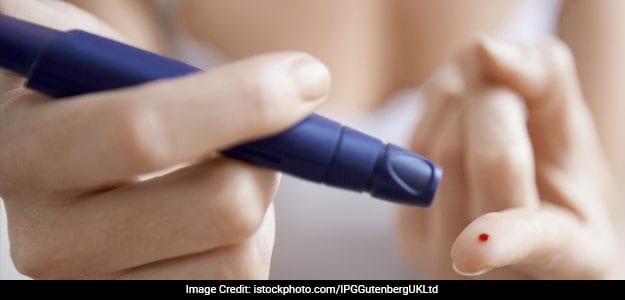Game changer discovery for diabetes patients! Artificial pancreas created by researchers which can detect and regulate insulin levels in the body of a diabetic using smartphone algorithms.

Artificial pancreas can regulate insulin levels with your smartphone
HIGHLIGHTS
- Type 1 Diabetes is when the pancreas produces little or no insulin
- Artificial pancreas system consists of an insulin pump monitoring glucose
- More serious consequences include coma, disorientation and seizures
Type 1 Diabetes is a chronic condition in which the pancreas produces little or no insulin.
Thus people with the disease must vigilantly monitor blood glucose levels and, when necessary, administer doses of insulin either via needle injections or infusion pump.
Also read: Do These 4 Easy Yoga Asanas To Keep Your Diabetes Under Control
Developed by researchers at the Harvard University, the artificial pancreas system consists of an insulin pump and continuous glucose monitor placed under the user's skin.
An advanced control algorithm embedded in a Bluetooth-connected smartphone signals how much insulin the pump should deliver to the patient based on a range of variables including meals consumed, physical activity, sleep, stress and metabolism.
For the study, published in the journal Diabetes Care, the team analysed the use of the novel artificial pancreas system for more than 60,000 hours on participants in a 12-week, multi-site clinical trial.
Also read: 6 Silent Symptoms Of Diabetes You May Be Missing
The results showed significant decrease in hemoglobin A1c (HbA1c) and reduced time spent in hypoglycemia.
A wrong dose can lead to hypoglycemia, which can then cause depressed mood, dizziness, drowsiness, fatigue, headache, hunger and inability to concentrate.
More serious consequences include coma, disorientation and seizures.
Also read: Top 5 Food Tips For Insulin Resistance
"This is by far the longest duration trial we have conducted, and it is a testament to the robustness of the algorithm that our key performance indices were maintained from our earlier, shorter trials," said Frank Doyle from the Harvard University.
In addition, the team introduced adaptive components that allowed the algorithm to "learn" from the repeated daily cycles, leading to improvements in basal control as well as meal compensation.
(This story has not been edited by NDTV staff and is auto-generated from a syndicated feed.)
DoctorNDTV is the one stop site for all your health needs providing the most credible health information, health news and tips with expert advice on healthy living, diet plans, informative videos etc. You can get the most relevant and accurate info you need about health problems like diabetes, cancer, pregnancy, HIV and AIDS, weight loss and many other lifestyle diseases. We have a panel of over 350 experts who help us develop content by giving their valuable inputs and bringing to us the latest in the world of healthcare.














